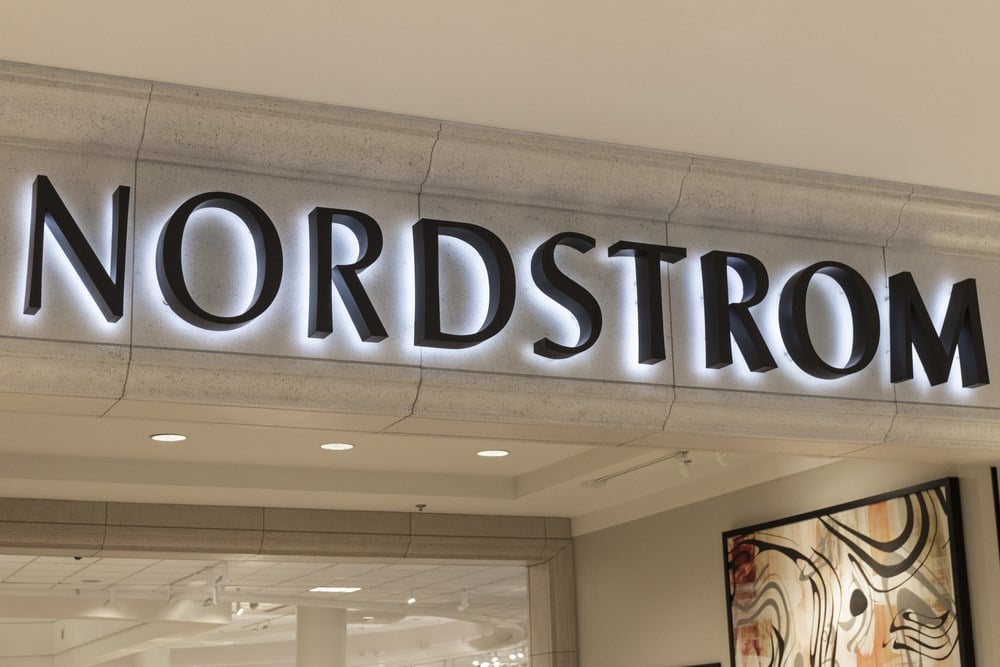
Shares of Nordstrom (NYSE: JWN) are trading higher by nearly 2% on Thursday's trading session on the back of adjusted earnings per share beat. While analysts expected a loss of $0.11 per share, the company surprised investors and markets alike by reporting adjusted earnings per share of $0.07. However, not all of the metrics were as positive as the apparel industry is experiencing similarly dire challenges. Names like Victoria's Secret (NYSE: VSCO) report similar slowdowns.
Investors have difficulty figuring out where the momentum lies, as diversified product names like Dick's Sporting Goods (NYSE: DKS) seem immune to these headwinds. However, specialized brands like Ralph Lauren (NYSE: RL) also broke out of the industry's contraction.
Despite a challenging year, Nordstrom's board of directors approved a quarterly dividend payout of $0.19 per share. This agreed-upon payout would place Nordstrom's dividend yield at nearly 5%, a yield not seen since the aftermath of the 2008 financial crisis; this lookback period excludes the sell-offs experienced during the COVID-19 pandemic. As investors are handsomely rewarded for awaiting management's next move toward a renewed vision, there is further supporting evidence for upside potential as management continues repurchasing cheap shares according to analyst price targets.
Industry Issues & Solutions
The broader apparel industry has been facing inventory issues, with disruptions in supply chains and shipping costs felt throughout 2020-2022. Today, consumer tastes change at an increasingly faster rate, primarily as the network effects of social media dissipate new styles and preferences. When the economic powers of supply and demand come together, the apparel industry's tightrope becomes apparent. Nordstrom's management has taken on new initiatives, considering the problems these environments could bring onto the company's margins.
A dedicated space in the company's earnings press release showcases some essential improvements. Reportedly, the company saw a 100-basis point (1%) improvement in supply chain costs, marking the third consecutive quarter of cost reductions. Additionally, efficiency ratios improved as shipping delays were left further behind in the rear-view mirror, increasing productivity metrics in fulfillment centers and enabling quicker inventory turnover. As a result of successfully navigating the inflationary environment and positively positioning the company for improved inventory management, gross margins increased by 1.1% during the year to finish the quarter at 33.8%.
Despite some positive core improvements in operations, Nordstrom's superficial metrics and results showcased the reality that the industry has been facing. First quarter 2023 sales reported an 11.6% decrease from the same period a year prior, with gross merchandise value (GMV) decreasing by 11.9%. Investors can lean on the fact that these are not company-specific trends but rather discretionary spending cyclicality at play and relatively lean on management effectiveness's effects on offsetting these trends.
Buy the Dip?
Nordstrom stock is trading at prices not seen since the 2008 financial crisis (again excluding the COVID-19 effects), and its valuation multiples stay caught up. Sporting a 3.4x price-to-book value, multiple will place the company at valuations similar to those during the recession, despite having achieved significant improvements and developments since then. Nordstrom analyst ratings suggest a near 25% upside potential from today's prices.
Analysts are not the only ones to point out the stock's cheapness today, as management has repurchased up to three million shares from the open market during the year. Considering that the stock has been trading at similar levels to those where management deemed it cheap enough to buy at, investors today can gain the same exposure that insiders have enjoyed for the better part of 2022. Furthermore, a near-high dividend yield suggests that the stock may be undervalued. Elevated dividend yields are cause for concern since they increase the risk of a payout slash. However, Nordstrom has reassured its latest dividend payout amount and thus dismissed these concerns.
Technically speaking, the stock is also approaching its most substantial historical support level. During the 2008 crash, the company bottomed at $6.61 per share, during a year when it only generated $1.68 per share. Today, the stock is approaching these prices once again, during a year when it has earned investors nearly 50% of what the whole of the 2008 year generated. Considering that management has guided investors to expect the full year 2023 adjusted earnings per share of $1.80 to $2.20, it would seem likely that the 2009 rally will be scratched for a 2024 rally. However, Christmas may come earlier this year.




